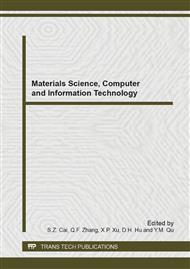p.4179
p.4183
p.4187
p.4191
p.4195
p.4200
p.4205
p.4209
p.4215
Digital Signal Processing Approach of Dithered RLG Based on IFIR Digital Filter
Abstract:
An interpolated finite impulse response (IFIR) digital filter approach was purposed to improve the demerits of traditional finite impulse response (FIR) digital filter in the case of noise attenuation for dithered Ring Laser Gyroscope (RLG). Concentrated on the time delay and computation complexity, a comparison of FIR and IIR digital filter was illustrated. By optimizing the stretch factor L, an IFIR digital filter was designed to reach the requirements of a typical RLG. The static experiment results show that the impulse number is decreased from 250 to below 0.15, attenuation of the dither noise is nearly 100 dB and group delay remains the same level by 11.25ms.
Info:
Periodical:
Pages:
4195-4199
Citation:
Online since:
July 2014
Authors:
Price:
Сopyright:
© 2014 Trans Tech Publications Ltd. All Rights Reserved
Share:
Citation:


